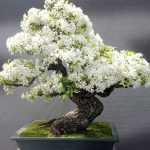 Fertilizers are the boost-ups for the plant growth. They stimulate the growth in the plants and make the plants grow in a very good condition.
Fertilizers are the boost-ups for the plant growth. They stimulate the growth in the plants and make the plants grow in a very good condition.
What do you do when your food is not providing sufficient nutrients and vitamins your body need? You cannot ignore the importance of these elements for your body, so you consume more energetic and nutritious food.
If this is also not satisfying then you consume nutritious capsules and supplements to cover this deficit. In the same way, plants also need some nutrients and supplements even after providing basic food.
Fertilizers are like nutritious capsules which supply the plants with necessary nutrients. When these fertilizers are added to the soil, they get converted into nutrients and turn the soil into quality soil.
Fertilizers while adding nutrients to the soil, also makes the soil rich and fertile.
Difference between organic and inorganic fertilizers
Organic fertilizers: These are safe and easily available fertilizers. Organic materials like manure, worm casting, slurry, seaweed, peat moss, guano and sewage are perfect examples of organic fertilizers. Vegetation organic fertilizers are seed hulls, corn husks, mulch, leaves, wood chips and grass. The organic fertilizers, other than adding nutrients, they also make the soil aerate.
Why to prefer organic fertilizers:
- Improves the structure of the soil
- Holds the soil moisture for a long time.
- It also mobilizes the existing nutrients in the soil
- Releases nitrogen consistently
- Lessens leaching.
Why not to opt organic fertilizers:
- The composition of nutrients is not consistent in these fertilizers. So, large amounts of fertilizers should be used to reach the requirement of the soil.
- Some organic fertilizers which contain fetus as the basic element will get contaminated with pathogens and causes bad smell.
Inorganic fertilizers: These fertilizers are artificially made to reach the requirements of the plants. These are also known as chemical fertilizers as the main components are chemicals. These fertilizers have all the necessary components which support the growth of the plants, the most common chemicals used in these fertilizers are ammonium nitrate, potassium chloride and ammonium phosphate.
Why to prefer inorganic fertilizers:
As these fertilizers are mixed to reach the expectations of the plants, they are mixed in appropriate proportions. So, these chemical/inorganic fertilizers can bring good yield to the plants.
- Release of the nitrates is very fast and this reaches the roots also in the same pace.
- Potassium present in these chemical fertilizers is known as potash; this improves protein development in the plants and strengthens the stem and leaves of the plants.
- Higher traces of phosphorus can give you more flowers and large fruits with larger yield. The rots grow healthier and the tubers grow better than before.
Why not to opt chemical/inorganic fertilizers:
- Improper dosage of these chemicals can literally kill or at least burn the natural elements of the plants.
- Distort the soil nature and sometimes lead to cadmium poisoning.
- The main ingredients present in these fertilizers are potassium and phosphorus; due to over usage of these fertilizers, natural fertility goes in scarcity.










Comments are closed.